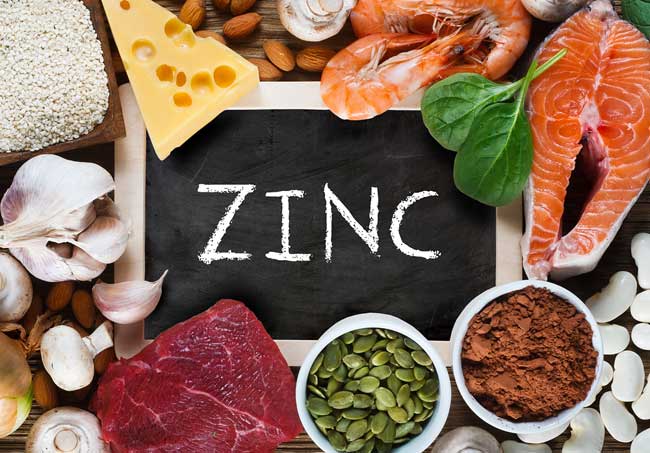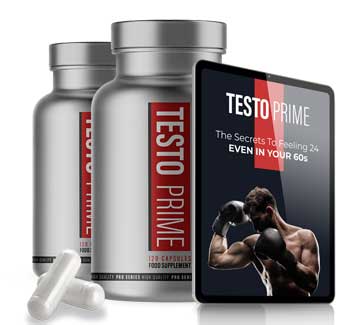Does zinc increase testosterone levels. Is it possible to get enough from your diet to raise T levels or should you take a zinc supplement

Zinc is a mineral that plays many roles in the human body. It helps maintain healthy growth and development, supports a healthy immune system, and contributes to normal energy levels. The question is: can you get enough zinc from your diet alone or should you take supplements? This article will discuss some of the best dietary sources for zinc as well as how much zinc you need per day to support testosterone production.
Content Table
Is it Possible to Get Enough Zinc from Diet?
Zinc is essential for survival. As one of 24 such micronutrients, it can be found in various foods including meat and eggs.
One of the richest sources of Zinc is oysters, and it happens to be the reason why this highly regarded sea food is widely considered an aphrodisiac.
As well as improving sex drive, Zinc is a key component of the endocrine system (hormonal processes), immune system and enzyme function, while acting as a powerful antioxidant and protecting the prostate.
Other Foods High in Zinc
The best dietary sources of zinc include oysters, red meat and poultry. Other good sources include: crab, lobster and other seafoods; dairy products such as milk and cheese; beans, nuts & seeds (like pumpkin & squash seeds); grains like wheat bran cereal.
Vegetarians need to pay attention because many plant-based foods contain high levels of phytic acid which can interfere with zinc absorption in the body. The following list shows you some common vegetarian options that are high in zinc: cashews; sunflower & sesame seeds; buckwheat flour; oatmeal ; soybeans ; quinoa .
Also keep an eye out for fortified cereals since they tend to be a good source too! You will also find small amounts of zinc in fruits like oranges and grapefruit, as well as vegetables including spinach & broccoli.
It is, however, Zinc’s interaction with testosterone and estrogen that we’re going to concentrate on in this article.
Sweating (Zinc) Bullets
Zinc is lost from our bodies via perspiration. Replenishment is therefore vital, considering the broad spectrum of influence it has in our systems.
We will come to discuss Zinc’s effect on testosterone levels in more detail, but it’s worth mentioning here that athletes, gym goers, sports players and anyone who leads an active life – indeed anyone who sweats a lot – would do well to ensure they are getting enough zinc for its optimization of testosterone production alone.
Supplementation is probably the easiest way to adequately replenish as it is sometimes difficult to absorb enough through diet alone – especially for people who exercise regularly.
Zinc and Testosterone
Studies have shown that zinc can bind to androgen receptors and therefore increase circulating testosterone levels.
People with a deficiency, or those who are heavily active and/or sweat a lot, will experience a reliable increase towards optimal levels of testosterone by simply supplementing a small amount daily (see below for dosage recommendations).
In other words, rather than this boosting your testosterone production above and beyond its natural potential, it normalizes it and therefore provides a solid base with which to work.
While many athletes and gym rats are struggling to make gains due to lack of replenishment, someone who supplements zinc on a daily basis can at least check that off their list of potential obstacles.
Zinc and Estrogen
In higher doses, zinc has been shown to be an aromatase inhibitor. This is the natural conversion of testosterone to estrogen.
For men looking to build muscle, a reduction of this aromatization process is very desirable.
It keeps free testosterone circulating for longer and reduces some estrogenic effects such as gynecomastia (man-boobs) and excess water retention (which can make you look bloated and therefore hide muscle).
Other Clear Benefits of Zinc
Don’t forget their are plenty of other positives to supplementing with zinc. Here are a few:
- Increase in growth factors (IGF-1), which may aid in muscle growth and recovery
- Reduction of LDL-C (“bad” cholesterol)
- Decreased levels of depression
- Acne reduction
What’s the Best Zinc Dosage to Increase Testosterone?
About 10mg is optimal for long term, daily supplementation, to minimize risk of deficiency through exertion and/or excessive sweating, and to keep testosterone levels healthy.
Higher doses are tolerable to a level of 100mg a day but only in the short term (i.e. less than a 4 month cycle).
The tolerable upper limit for extended use appears to be about 40mg a day.
Recommendations for Zinc Supplementation
It’s definitely worth checking which zinc-rich foods are in your everyday diets. Legumes, meats and eggs contain it in higher levels than most groups.

However, if you are into lifting weights, crossfit, endurance sports and activity in general…or if you are simply a sweaty person, it is absolutely worth supplementing daily.
Something that works for most of our clients is to take a combined testosterone booster that contains several ingredients that work together to actually boost testosterone levels.
A good product will definitely be based on Zinc, like TESTOPRIME which is noted for its potency. We think it is the best product released this year.
What Else Should you know about zinc?
The amount needed for men is 11mg per day while women need around only eight mg. It’s important to note that the RDA (recommended daily allowance) for children varies based on age group (see below).
Zinc toxicity can cause nausea, vomiting, loss of appetite, abdominal cramps and diarrhea so it’s important not go overboard with intake! Also keep in mind that alcohol consumption can interfere with zinc absorption which may increase your risk for deficiency if you drink too much.
Recommended Daily Allowance – Children ages 0-14 years old: Male/Female = 300mcg/210mc
Zinc and Testosterone References
- Jalali GR et al. Impact of oral zinc therapy on the level of sex hormones in male patients on hemodialysis. May 2010 [http://www.ncbi.nlm.nih.gov/pubmed/20446777]
- Kilic M. Effect of fatiguing bicycle exercise on thyroid hormone and testosterone levels in sedentary males supplemented with oral zinc. Oct 2010 [http://www.ncbi.nlm.nih.gov/pubmed/17984944]
- Kilic M et al. The effect of exhaustion exercise on thyroid hormones and testosterone levels of elite athletes receiving oral zinc. Feb-Apr 2006 [http://www.ncbi.nlm.nih.gov/pubmed/16648789]
Zinc and Estrogen References
- Om AS, Chung KW. Dietary zinc deficiency alters 5 alpha-reduction and aromatization of testosterone and androgen and estrogen receptors in rat liver. Apr 1996 [http://www.ncbi.nlm.nih.gov/pubmed/8613886]
